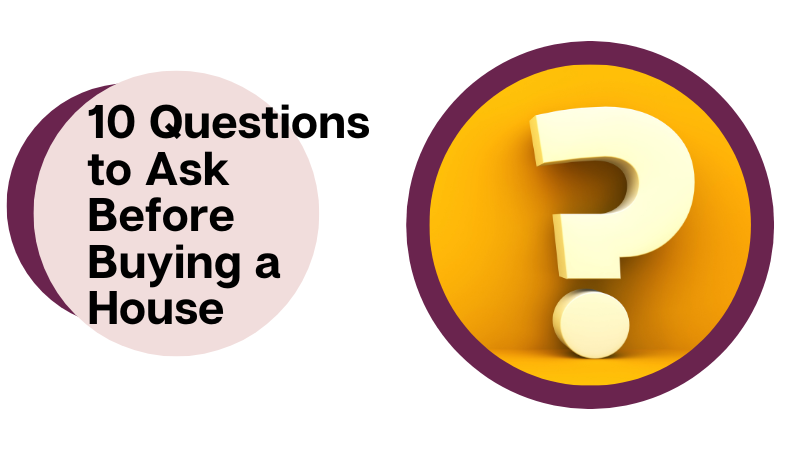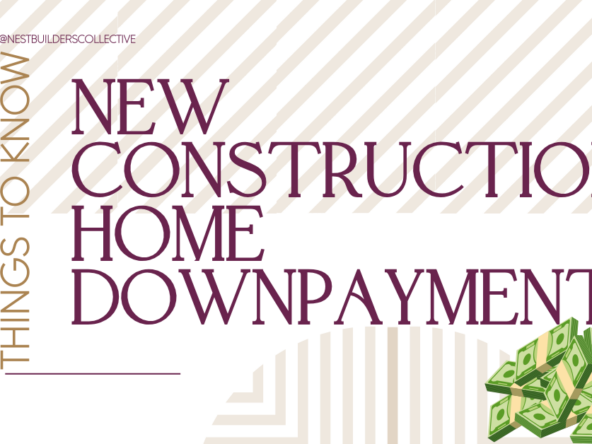If you’re a first-time home buyer, the process of purchasing a house can be overwhelming, especially if you have no prior experience. However, by asking the right questions, you can gain valuable insights into the condition of the property and make an informed decision. In this blog post, we will explore 10 crucial questions to ask the seller and your real estate agent when considering buying a house. These questions cover various aspects, including insurance, health and safety hazards, the condition of major systems, neighborhood information, and more. By seeking answers to these questions, you can navigate the home-buying process with confidence.
>> RELATED READ :: The Buying Process Explained <<
1. Assessing the Risk of Natural Disasters in Your Area:
Understanding the risk of natural disasters in your desired location is essential for assessing insurance costs and potential hazards. In Houston, for example, it’s important to consider the risks of flooding and hurricanes. Flood insurance may be necessary, as standard homeowners insurance typically does not cover flood damage. Determine if the property is located in a flood zone and inquire about any previous flood incidents or mitigation measures.
2. Identifying Health or Safety Hazards:
While sellers are obligated to disclose known issues, it’s essential to get the full picture. Inquire about health hazards specific to the Houston area, such as mold or termite infestations. Additionally, consider asking about the home’s resilience against hurricane-force winds and any previous wind-related damage.
3. Evaluating the Roof’s Condition:
Given the prevalence of severe weather events in Houston, it’s crucial to assess the roof’s condition. Inquire about the age of the roof, its materials, and whether it has undergone any repairs or replacements due to past storms. Adequate roof maintenance is vital for protecting the property against heavy rains and hurricane winds.
4. Assessing the Condition of Major Systems:
Learn about the age and condition of vital systems like the water heater, HVAC, and other appliances. Houston’s hot and humid climate can put additional strain on these systems, so ensure they are in good working order. Inquire about any maintenance or repairs that have been done, as well as the availability of warranties.
5. Estimating Monthly Costs:
Understanding the monthly homebuying costs, including HOA fees and property taxes, is crucial when considering a home in the Houston, TX area, where property tax rates can vary significantly by neighborhood. In addition to the purchase price of the home, it’s essential to factor in recurring expenses to create a comprehensive budget.
Homeowners’ Association (HOA) fees are common in many neighborhoods and cover shared community amenities and maintenance. Inquire about the HOA fees associated with the property you are interested in, as they can vary depending on the neighborhood and the services provided. These fees are an ongoing expense that should be included in your monthly budget.
Property taxes are another significant cost to consider. In the Houston area, property tax rates can differ from one neighborhood to another. Research the property tax rates for the specific location you are considering and factor this expense into your budget calculations.
In addition to HOA fees and property taxes, other factors can affect your monthly budget related to a home. Understanding the average utility expenses in the Houston area is crucial for budgeting purposes. Inquire about the typical costs of electricity, water, and other utilities, taking into account the region’s climate and energy rates. Additionally, ask about any energy-efficient features or upgrades in the home that could help reduce utility bills, such as solar panels or energy-efficient appliances. Other potential costs to consider include maintenance and repairs, homeowners’ insurance, and, if applicable, private mortgage insurance (PMI) for buyers with a down payment of less than 20%. Factoring in these various expenses will give you a more realistic view of the overall cost of homeownership and enable you to make a well-informed decision about your potential new home.
6. Clarifying Which Appliances Are Included:
Ensure you have a clear understanding of which appliances are included in the sale. Inquire about essential appliances such as refrigerators, washers, and dryers, as well as any other appliances specific to Houston’s climate, such as dehumidifiers or storm shutters.
7. Inquiring About Additions or Renovations:
When purchasing a home, inquiring about any additions or renovations is a crucial step to ensure a smooth and hassle-free homebuying process. Buyers should diligently investigate whether any modifications made to the property were permitted and comply with local building codes and regulations. Unpermitted additions can lead to potential legal and financial complications, and it’s essential to avoid any surprises after closing the deal.
Additions to a home encompass a wide range of modifications that can enhance the property’s value and functionality. These can include additional rooms, such as bedrooms, bathrooms, or home offices, which provide extra space to accommodate a growing family or cater to specific needs. Pools are another popular addition, offering a luxurious amenity for relaxation and entertainment during warmer months. A well-designed patio can extend the living space outdoors, providing an ideal area for gatherings and enjoying the fresh air.
8. Researching Comparable Home Sales:
Consult your real estate agent to determine the selling prices of similar homes in the Houston area.
Researching comparable home sales, also known as “comps,” is a crucial step in the home buying or selling process. Comparables are recently sold properties that are similar in size, location and features to the subject property. Analyzing comps helps determine the fair market value of a home, providing valuable insights to both buyers and sellers. By understanding the factors that influence comparable home sales, individuals can make more informed decisions and negotiate a reasonable price.
9. Considering Time on the Market:
Find out how long the house has been on the market. A lengthy listing time may raise concerns, but it can also present an opportunity for negotiation.
Homes that have been on the market for a shorter duration tend to attract more attention and may lead to less negotiation in terms of price and conditions. Buyers looking for a quick and smooth transaction should consider acting swiftly on this property, as its freshness in the market might draw multiple interested parties.
On the other hand, for those seeking more room for negotiation, homes that have been on the market for a longer period offer potential advantages. Such properties can create opportunities for buyers to negotiate the price and terms more favorably. Sellers of homes that have been listed for an extended time may become more flexible due to factors like needing to relocate, reducing holding costs, or adjusting their expectations based on market feedback. This opens up possibilities for prospective buyers to make offers that align with their needs and financial constraints.
There are various reasons why homes may sit on the market for an extended period. One common factor is an overpriced initial listing. If a property is priced too high relative to its value or the current market conditions, it might deter potential buyers, causing it to linger on the market. Additionally, homes with unique or unconventional features may take longer to find the right buyer who appreciates those characteristics. Moreover, the overall state of the real estate market can influence how quickly homes sell. In a slow market or during economic downturns, properties tend to stay on the market longer as buyer demand diminishes. Conversely, in a competitive seller’s market, homes may sell relatively quickly due to high demand and limited inventory. Other reasons for extended market time could include limited marketing efforts, location-specific challenges, or structural or cosmetic issues that deter buyers.
10. Assessing the Neighborhood:
Accessing the neighborhood before buying a home is an essential step in the home-buying process. The neighborhood plays a significant role in shaping the overall living experience and lifestyle of the residents. It’s crucial to thoroughly research and explore the area to ensure it aligns with your preferences, needs, and long-term goals.
One way to access the neighborhood is by spending time walking or driving around during different times of the day and week. This will give you a sense of the traffic patterns, noise levels, and overall ambiance. Pay attention to the condition of the streets, the upkeep of properties, and the presence of amenities like parks, schools, shopping centers, and public transportation. Assessing the proximity to essential services and recreational facilities is essential to gauge the convenience and accessibility of the location.
Interacting with the local community is another excellent way to gain insights into the neighborhood. Strike up conversations with potential neighbors, visit local businesses, and attend community events if possible. Engaging with residents can provide valuable information about the neighborhood’s safety, sense of community, and overall atmosphere.
Additionally, conducting thorough online research is highly beneficial. Utilize online resources to check crime rates, school ratings, and community reviews. Social media platforms and neighborhood-specific forums can offer valuable firsthand experiences and opinions from current residents.
Overall, accessing the neighborhood before buying a home empowers you to make an informed decision, ensuring that the community aligns with your lifestyle preferences and meets your expectations for a comfortable and happy living environment.
When buying a home, it’s crucial to ask the right questions and seek answers from various sources, including your real estate agent, the seller, and a home inspector. By obtaining comprehensive information about insurance, safety hazards, the condition of the property, the neighborhood, and potential stigmas, you can make informed decisions and navigate the home-buying process successfully. Remember to consider your options if you’re unsatisfied with the answers received, such as negotiating a warranty or a discount, or even walking away from the sale. Armed with these essential questions, you can approach your home-buying journey in Houston with confidence. Start by applying for your initial mortgage approval online and begin your house hunt today









